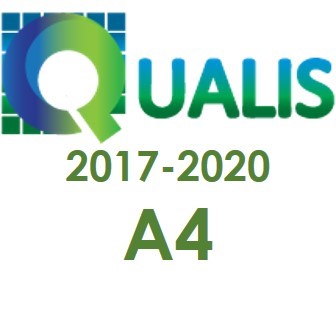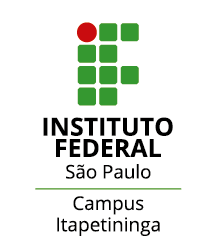Perspectiva crítico-reflexiva e colaboração na formação do professor
Palavras-chave:
a autora não informouResumo
Neste artigo, objetiva-se apresentar discussões teóricas sobre a formação do professor na perspectiva crítico-reflexiva. Para tanto, a definição de reflexão crítica na formação docente será elaborada por meio da contribuição de vários pesquisadores, dentre eles, Dewey (2002), Moon (2001), Schön (1995, 2002), Liberali, (2004), Freire (1987), Kemmis (1987), Magalhães e Fidalgo (2007) e Smyth (1993). A reflexão crítica proposta aqui se baseia nos estudos de Freire (1987), está voltada às relações dialéticas entre sociedade, sujeito e educação, e prevê a relação teoria-prática no processo de apropriação de conhecimentos, com vistas à emancipação dos sujeitos e à transformação social. Inclui ainda um olhar sobre a práxis, no intuito de colocar os professores como pesquisadores de sua própria ação. Na formação do professor reflexivo, a linguagem assume centralidade na medida em que pode ser empregada para manter ou compartilhar poder, para questionar contextos, compreendê-los e buscar reorganizá-los. A perspectiva crítico-reflexiva na formação de professores é relacionada, ainda, ao processo de criatividade (CELANI, 2004; VYGOTSKY ([1930] 1999), enquanto possibilidade de transformação de situações já existentes, e à ideia de colaboração (MAGALHÃES, 2007a, 2007b, 2009) por meio de um modo de agir pautado pela intencionalidade e na relação com o outro para a expansão do objeto compartilhado.
Downloads
Referências
BAKHTIN, M. Estética da criação verbal. 6a ed. Trad. Paulo Bezerra. São Paulo: Martins Fontes, [1979] 2011.
CELANI, M. A. A. Culturas de aprendizagem: Risco, incerteza e educação. In: MAGALHÃES, M. C. C. A formação do professor como um profissional crítico. Campinas, SP: Mercado de Letras, 2004. p. 29-42.
DEWEY, J. Thinking the reflective experience. In: POLLARD, A. Readings for reflective teaching. New York: Continuum, 2002. p. 4-5.
EDWARDS, A. Relational Agency in Professional. Practice: A CHAT Analysis. Actio: An International Journal of Human Activity Theory. The Center for Human Activity Theory, Kansai University, no 1, 2007, p. 1-17.
_____________. Building common knowledge at the boundaries between professional practices: relational agency and relational expertise in systems of distributed expertise. International Journal of Educational Research, Oxford, v.50, p.33-39, 2011.
ENGESTRÖM, Y. Development, Movement and Agency: Breaking Away into Mycorrhizae Activities. In: K. YAMAZUMI (Ed.). Building activity theory in practice: Toward the next generation. Osaka: Center for Human Activity Theory, Kansai University, 2005.
__________________.; SANNINO, A. Dicursive manifestations of contradictions in organizational change efforts: a methodological framework. Journal of Organizational Change Management, Bradford, v.24, n.3, p.368-87, 2011. Disponível em: . Acesso em: 01 ago. 2017.
FONSECA, L. S. S. A agência na formação de uma professora de língua estrangeira espanhola em contexto pré-serviço. Tese (Doutorado em Linguística Aplicada e Estudos da Linguagem), 2015. São Paulo: Pontifícia Universidade Católica de São Paulo, 2015.
FREIRE, P. Pedagogia do oprimido. 17a ed. Rio de Janeiro: Paz e Terra, 1987.
GIDDENS, A. A constituição da sociedade. São Paulo: Martins Fontes, 1989.
GONÇALVES, D. de A. Reflexão crítica na atividade Reunião Pedagógica. Dissertação (Mestrado em Linguística Aplicada e Estudos da Linguagem), 2007. São Paulo: Pontifícia Universidade Católica de São Paulo, 2007.
JONH-STEINER, V. Creative collaboration. Oxford: University Press, 2000. p. 187-204.
KEMMIS, S. Critical reflexion. In: WIDEEN, M. F. ANDREWS, I. Staff development for school improvement. The Falmer Press, 1987. p. 71-90.
LIBERALI, F. C. Formação crítica de educadores: questões fundamentais. Taubaté: Cabral Editora e Livraria Universitária, 2008.
______. Getting ready to conduct a reflective session. The ESPecialist, v. 25, nº especial, p.23-38, 2004. Disponível em: <http://www.corpuslg.org/journals/the_especialist/issues/25_special_2004/ARTIGO2.PDF>. Acesso em: 13 jun. 2013.
MAGALHÃES, M.C.C. A linguagem na formação de professores como profissionais reflexivos e críticos. In: MAGALHÃES, M. C .C. A formação do professor como um profissional crítico. Campinas, SP: Mercado de Letras, 2004. p. 45-62.
__________________. A Pesquisa Colaborativa em Linguística aplicada. In: FIDALGO, S. S.; SHIMOURA, A. da S. Pesquisa crítica de colaboração: um percurso na formação docente. São Paulo: Ductor, 2007b. p. 148-157.
__________________. FIDALGO, S. S. The role of methodological choices in investigations conducted in school contexts: critical research on collaboration in continuing teacher education. In: RIIKKA, A.; PÖYHONEN, S. Language in Action: Vygotsky and Leontevian legacy today. Cambridge Scholars Publishing, 2007. p. 329-351.
__________________. Formação Contínua de Professores: Sessão reflexiva como espaço de negociação entre professores e pesquisador externo. In: FIDALGO, S. S.; SHIMOURA, A. da S. Pesquisa crítica de colaboração: um percurso na formação docente. São Paulo: Ductor, 2007a. p. 97-113.
__________________. O método para Vygotsky: a zona proximal de desenvolvimento como zona de colaboração e criticidade criativas. In: SCHETINI, R.H.; DAMIANOVIC, M. C.; HAWI, M. M.; SZUNDY, P. T. C. Vygotski: uma revisita no início do século XXI. São Paulo: Andross, 2009.
__________________. Pesquisa crítica de colaboração: uma pesquisa de intervenção no contexto escolar. In: SILVA, L.S.P. LOPES, J.J.M. (orgs.) Diálogos de Pesquisas sobre Crianças e Infâncias. Niterói, RJ: Editora da UFF, 2010, p. 20-40.
__________________. Pesquisa crítica de colaboração: escolhas epistemo-metodológicas na organização e condução de pesquisas de intervenção no contexto escolar. In: MAGALHÃES, M.C.C. FIDALGO, S. S.(orgs.) Questões de método e de linguagem na formação docente. Campinas: Mercado das Letras, 2011, p.13-40.
MARX, K. Manuscritos econômicos- filosóficos. São Paulo: Martin Claret, 1844/2004.
MOON, J. Reflection in Higher Education Learning. Learning LTSN Generic, PDP Working Paper 4, 05/10/2001.
PÉREZ GÓMEZ, A. P. O pensamento prático do professor: a formação do professor como profissional reflexivo. In: NÓVOA, A. (Coord.) Os professores e a sua formação. 2a ed. Lisboa: Dom Quixote, 1995. p. 93-114.
SÁNCHEZ VÁZQUEZ, A. Filosofia da práxis. 2ª ed. Trad. Maria Encarnacion Moya. São Paulo: Expressão Popular, 2011.
SCHÖN, D. A. Reflection in action. In: POLLARD, A. Readings for reflective teaching. New York: Continuum, 2002. p. 5-7.
______. formar professores como profissionais reflexivos. In: NÓVOA, A. (Coord.) Os professores e a sua formação. 2a ed. Lisboa: Dom Quixote, 1995. p. 77-92.
SMYTH, J. Teacher’s work and the politics of reflection. American Educational Research Journal. 1993, p. 267-300.
VYGOTSKY, L. S. Imaginação e criação na infância. Trad. Ana Luiza B. Smolka. São Paulo: Ática, [1930] 1999.
WEBB, G. To critically go: staff development for a better world. In: WEBB, G. Understanding Staff Development. London: Routledge, 1996. p. 59-77.
Downloads
Publicado
Como Citar
Edição
Seção
Licença
Copyright (c) 2018 Revista Internacional de Formação de Professores

Este trabalho está licenciado sob uma licença Creative Commons Attribution-NonCommercial-NoDerivatives 4.0 International License.



 Este trabalho está licenciado sob uma licença
Este trabalho está licenciado sob uma licença 